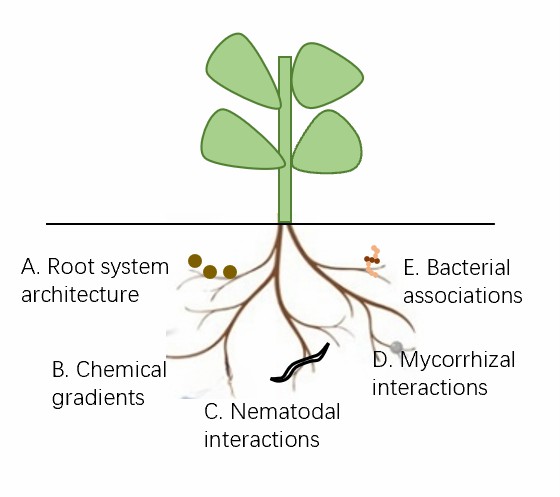Inter-rhizosphere bacteria are isolated from plant roots with a high affinity and antagonism to plant roots, which can promote plant growth and are easy to apply in culture. They have also been studied for the biological control of plant-parasitic nematodes. Several groups have been found to be effective against nematodes, including Agrobacterium, Bacillius, Pseudomonas, Acinebacter, Chromobacterium, Enterobacter, and Serratia. Aerobic endospore-forming bacteria (mainly Bacillus spp.) and Pseudomonas spp. are among the dominant populations in the rhizosphere that can antagonize nematodes.
Lifeasible provides analysis services for the control of nematodes by inter-rhizosphere bacteria to help our customers worldwide in plant science. Our platform is equipped with cutting-edge facilities and professional experts to support research. Here, we provide various services according to customers' demands.
 Fig.1 Some rhizosphere processes in the soil.
Fig.1 Some rhizosphere processes in the soil.
Lifeasible has long-term devoted to the development and application of plant science. We are pleased to use our extensive experience and advanced platform to offer satisfied service and qualified products to satisfy each demand from our customers. If you are interested in our services or have any questions, please feel free to contact us or make an online inquiry.
Lifeasible has established a one-stop service platform for plants. In addition to obtaining customized solutions for plant genetic engineering, customers can also conduct follow-up analysis and research on plants through our analysis platform. The analytical services we provide include but are not limited to the following:
STU-CRISPR System Improves Plant Genome Editing Efficiency
April 19, 2024
Application of Exosomes in Facial Beauty
April 12, 2024